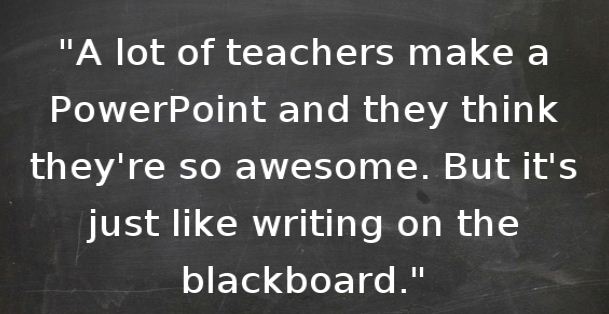Does media affect learning?
This post is based on R.B. Kozma’s 1994 article, “Will media influence learning? Reframing the debate”
“Does media influence learning? Would a better question be “Does media affect learning?” and “Does media maximize learning?
Perhaps media influences learning but minimally depending on the external forces directing it. Media affects learning proportionally depending on the context and the coach. This we know. For example, a Justin Bieber video may only influence me to change the TV channel, not dance around the room. With the addition of Ludacris as a coach and vocal talent, I might be inclined to tap a pedicured toe or two, but I remain far, far, far removed from purchasing the CD. So Clark’s research (now 30 years-old) remains relevant.
Kozma was correct: it is time to reframe the question. The real game-changing question is “Does media maximize my learning and how can I measure it?” If I substitute Miles Davis for the Bieber and Ludacris pairing, then the entire scenario changes and I am listening, toe-tapping, twirling, and rummaging through my purse for my credit card on Amazon. Better batteries in my boom box did not produce the change: the artistic content made the change. Content may indeed be my “Baby”.
Kozma emphasizes the point of connection between media and learning. This is, for me, where teaching and education intersect with science and art. Can we measure the art of teaching with scientific tools? Can we measure when learning occurs? Not the point afterlearning is retained but when it occurs? Can the “Aha” moment be measured?
Have we stayed too long in Pavlov’s cage of stimuli and response? Kozma writes convincingly, “Missing in these studies are any mentalist notions or descriptions of the cognitive, affective, or social processes by which learning occurs.”
Or, returning to the Beebs, it may not be pedagogically sound for me to call media my “Baby, Baby, Baby” if I can’t recall why I love it and think it “will always be mine.”
imo
R.B. Kozma (1994). Will media influence learning? Reframing the debate. ETR&D, 42(2), pp 7-19. ISSN 1042-1629





